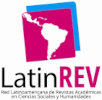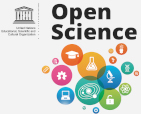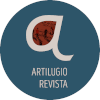Rethinking the “Open Works” from Music Performance: An interpretation beyond reproduction
Keywords:
Music performance, musical work, musical composition, Performance Studies, music creationAbstract
The aim of this article is to problematize some definitions of music performance that have predominated in musicology prior to the performative turn, proposing a perspective focused on its active role in the processes of artistic creation. We will propose two meanings that will support the idea of work and music performance on which to work. The first one will be the notion of Open Work by Umberto Eco (1962) which will be used, contrasted and expanded to conjecture and delimit what refers to art work/musical work in this paper. Consequently, for the discussion about music performance, we will mainly use the Paradigm of Reproduction developed by Nicholas Cook (2014). Both concepts will be put into dialogue to solve the question: Music performance: creation or reproduction?. The suggested path leads to reflections that force us to think about performance from its scenic and phenomenological dimension, as well as to value the role of the performer, along with the diversity of artistic formats, and in this way commit the practice of music performance to musical creation.
Downloads
References
Auslander, P. (2006). Musical personae. TDR: The Drama Review, 50(1) (T 189), pp. 100-119.
Barthes, R. (1987). La muerte del autor. En El susurro del lenguaje (pp. 65-71). Barcelona: Paidós.
Benjamin, W. (2009). Estética y política. [Trad. Tomás Agustín Bartoletti y Julián Manuel Fava]. Buenos Aires: Ed. Las Cuarenta.
Boroditsky, L. (2021). Cómo la lengua configura nuestro pensamiento [entrevista de Zuberoa Marcos]. Canal Aprendemos Juntos 2030. https://youtu.be/Qnz4Esh6WNg?si=lpZLutzwvm3orLdr
Cook, N. (2014). Beyond the score: Music as performance. Oxford: Oxford Scholarship Online.
Eco, U. (1962). Obra abierta. Buenos Aires: Editorial Planeta Argentina.
Fischer-Lichte, E. (2011). Estética de lo performativo. Madrid: Abad Editores S.L.
Foucault, M. (1984). ¿Qué es un autor? [Traducción de Corina Yturbe]. Dialéctica, 16. https://repositorio.unal.edu.co/bitstream/handle/unal/47317/11837-29541-1-PB.pdf?sequence=1&isAllowed=y
Lotman, I. M. (1996). La semiosfera I. Semiótica de la cultura y del texto. Madrid: Cátedra.
Madrid, A. L. (2009). ¿Por qué música y estudios de performance? ¿Por qué ahora?: una introducción al dossier. Trans Revista Transcultural de Música, 13.
Real Academia Española. (2023). Interpretar. En Diccionario de la lengua española. Consultado el 16 de octubre de 2023. https://dle.rae.es/interpretar.
Published
How to Cite
Issue
Section
ARK
License
Copyright (c) 2024 Paloma Castro Pavez

This work is licensed under a Creative Commons Attribution-NonCommercial-ShareAlike 4.0 International License.
















